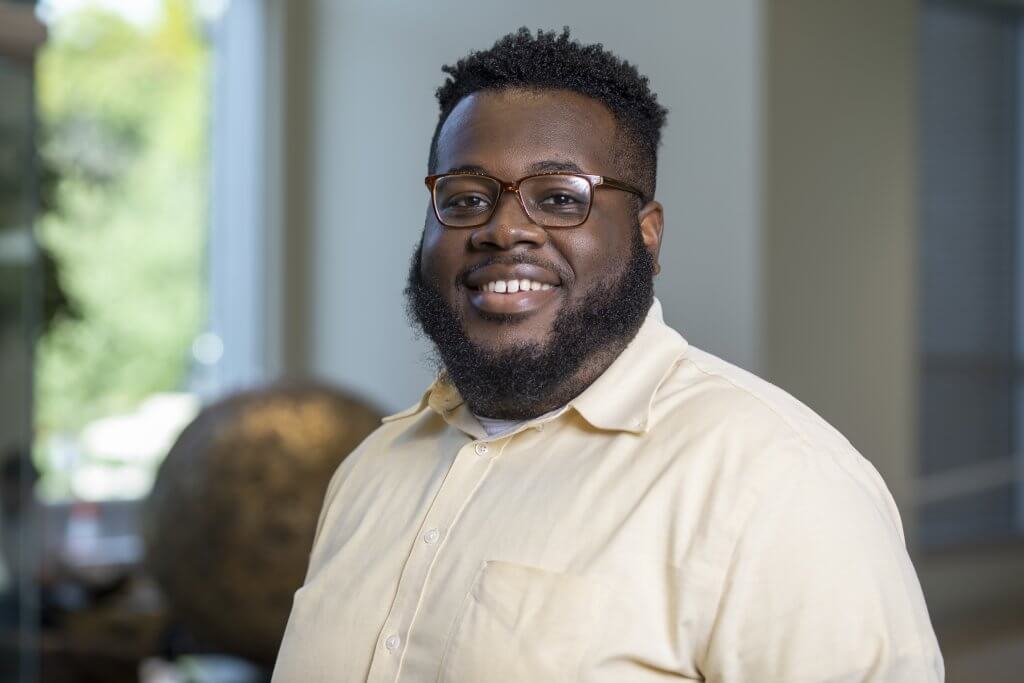Through a counselor education framework established by the Council for Accreditation of Counseling and Related Educational Program (CACREP) standards, the 60-credit graduate program in Student Affairs and College Counseling is designed to prepare student affairs practitioners as educators, counselors, and administrators.
Students learn skills to develop and manage supportive relationships with contemporary college students to foster their development and facilitate learning opportunities. Students will also learn the historical and philosophical ethos of student affairs as a helping profession, and integrate developmental counseling theories into educational programs and interventions to promote student persistence towards graduation.
Those enrolled in the program will also learn counseling skills, crisis management techniques, career development theories, and are exposed to diversity issues and how student affairs professionals as social justice advocates can address historical, societal, and contemporary inequities within their practice.
Program Delivery
Courses are offered in a fully hybrid format where students meet in-person for an hour and twenty minutes per week and for the other hour and twenty minutes you work at your leisure online to complete coursework. This format provides students with an immersive hands on experience while reducing their time on campus when classes are scheduled on the same day back-to-back. We offer this flexibility because we realize that many of our students are working and have other life obligations while going to school. Monmouth’s Educational Counseling programs are also known for their small class sizes and the personalized attention students receive from expert faculty.
Program Distinctiveness
The Student Affairs and College Counseling program is unique, as it has courses focusing on mental health concerns, assessment, and social justice/diversity. Through an distinctive pedagogical approach, students become emerging experts in integrating specific theories into student affairs administrative systems.
Specifically, this program operates on the foundational and historical perspective that student affairs is a helping profession and not simply an administrative function within a college or university. Students will graduate with the experience, knowledge, and skill to function as student affairs professionals or college counselors in helping students develop their identity and supporting students as they persist towards graduation. Students will also be prepared to become involved in the professional associations and eventually serve in leadership capacities, all with the understanding that they are to establish supportive frameworks for students based on developmental models, not simply policy.
By gaining knowledge about pre-college issues, students can understand the narrative and experience of first-generation and traditional student transition.
Chi Sigma Alpha, the international honor society for student affairs, serves to recognize our top students and offer professional development and support to program students.
Additional Endorsements and Dual Track Option
Students may also obtain a New Jersey school counseling certification by taking two additional courses and completing two additional internships. The program is accredited by Council for Accreditation of Counseling and Related Educational Programs (CACREP). Students can earn national licensure (NCC) and eventually complete requirements for the Licensed Professional Counselor designation post-graduation.
Commitment to Social Justice
The Student Affairs and College Counseling (SACC) program fosters a strong conceptual commitment to increasing awareness of the diversity of student populations and to social justice. Diversity and social justice concepts are specifically addressed across the curriculum, and more intentionally within two specific courses entirely. To demonstrate this commitment, the Educational Counseling programs in school counseling and student affairs/college counseling sponsor the pre-college mentoring program Monmouth Future Scholars; this program seeks to increase the number of college-bound, first-generation students in Long Branch City Schools.
Field Placements
The field placement process is an integrative 700-hour supervised practice experience, distributed across several semesters and consisting of three individual placements. Each experience is connected to an academic course, which includes supervision and addresses contemporary practice issues within higher education. Students will serve in capacities across the multiple functional areas within student affairs to demonstrate theory to practice.
Our dedicated Field Placement Coordinator works with each individual student to secure an ideal and convenient internship location, supporting students throughout the entire process which some schools do not offer. Students complete a portfolio based upon the ACPA/NASPA professional competencies upon the overall completion of their field experience.
Admissions
Applications are accepted on a rolling basis for Fall.

The hands-on, experience-based Educational Counseling program at Monmouth has challenged me and given me opportunities to grow. Through conferences, fieldwork, and on-campus involvement, I have learned new skills while embracing my passion for this profession. The phenomenal faculty and support system at Monmouth has been instrumental in my success and has prepared me to be a leader in my field.
Jihad Johnson
Educational Counseling Graduate Student – Student Affairs and College Counseling
